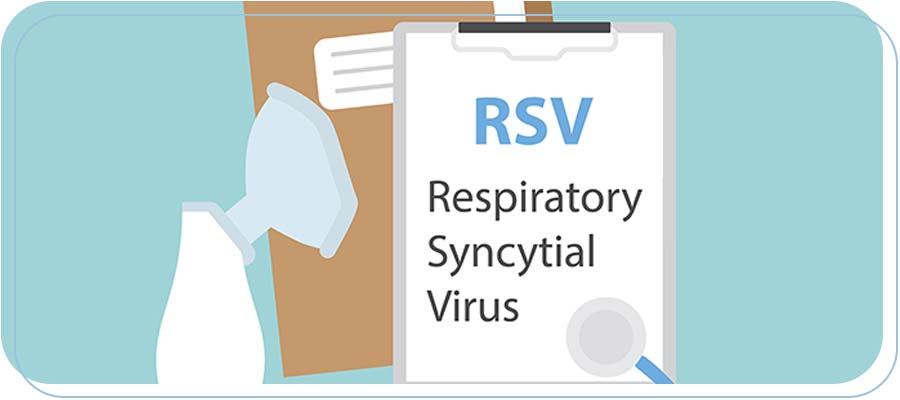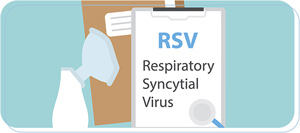Respiratory Syncytial Virus (RSV) Testing Q&A
Respiratory Syncytial Virus is an infection that affects the respiratory tract such as the lungs, nose, and throat. RSV testing can identify a lower respiratory tract infection in patients with moderate to severe symptoms. Signs and symptoms of RSV include coughing, sneezing, runny nose, and congestion. Visit Dr. Usha Rani K. Reddy, M.D. a board-certified physician at Reddy Urgent Care for medical advice and treatment. Walk-ins are welcome. For more information, contact us. We have convenient locations to serve you.


Table of Contents:
What is a respiratory syncytial virus?
What are the symptoms of respiratory syncytial virus?
What are the stages of RSV?
How long does RSV usually last?
Respiratory syncytial virus, known as RSV, is a common virus that affects the respiratory tract. While this illness can affect people of all ages, it is particularly severe for young children, infants, older adults, and immunocompromised individuals. RSV usually causes mild, cold-like symptoms, but it can lead to more serious conditions such as bronchiolitis and pneumonia.
RSV is highly contagious, spreading through coughs, sneezes, and infected surfaces. This makes the virus quite easy to catch in communal settings, such as daycares. It’s important to wash your hands often, stay home if you’re feeling unwell, and disinfect surfaces frequently to stop the spread of RSV and other viruses.
In addition, RSV immunizations are available to protect vulnerable groups, such as infants and adults over the age of 60, from serious complications. RSV immunizations provide an added layer of protection to fight the infection.
The symptoms of RSV are similar to those of other illnesses affecting the respiratory tract. The most common RSV symptoms include:
– Runny nose
– Coughing
– Sneezing
– Fever
– Sore throat
– Decrease in appetite
– Wheezing
– Fatigue
– Trouble swallowing, eating, or drinking
– Breathing faster than usual
In infants, RSV can cause symptoms such as short, shallow, noisy, or rapid breathing, pauses while breathing, poor feeding, irritability, and lethargy. It’s important to note that while symptoms may start mild and resemble a common cold, they can escalate, especially in infants and immunocompromised individuals. Severe cases of RSV can lead to serious respiratory problems, such as bronchiolitis, and result in hospitalization.
If you notice any concerning symptoms in your infant or child, it’s crucial to bring them into pediatric urgent care to have them assessed by a doctor. The experts at Reddy Urgent Care can provide comprehensive care and advice on how to alleviate symptoms and prevent the spread of the virus.
After you are first exposed to RSV, symptoms typically take four to six days to appear. Following the incubation period, mild symptoms emerge first, such as low-grade fever, cough, a runny nose, and a decrease in energy levels. At this stage, RSV is often mistaken for the common cold.
As the illness progresses, symptoms can intensify, leading to significant discomfort, especially in infants and young children. In the most severe cases, RSV can lead to complications, such as bronchiolitis or pneumonia, so it’s important to seek medical attention promptly if symptoms persist or worsen.
Typically, symptoms of RSV last for about two weeks before beginning to clear up gradually. It’s not uncommon for a mild cough to linger for a few weeks after the initial infection. To make the recovery from RSV as smooth as possible for vulnerable groups, consulting a healthcare professional is recommended.
In most cases, RSV infections go away on their own after about a week or two. Typically, people who are infected with RSV remain contagious for about three to eight days. They may also be contagious before signs of illness appear. In addition, infants, older adults, and people with weakened immune systems can remain contagious for as long as four weeks, even if they are no longer showing symptoms.
When your infant or child is recovering from RSV, it’s crucial to monitor their symptoms carefully and consult a healthcare professional if you observe any signs of worsening, such as difficulty breathing or a persistent high fever. You should ensure your child gets plenty of rest and drinks enough fluids to promote recovery and prevent dehydration.
Your healthcare provider may recommend over-the-counter medications, such as acetaminophen, ibuprofen, or cold medicines, to manage fever or discomfort. As some cold medicines contain ingredients that are not good for children, it’s important to speak with a doctor first. If you or a loved one has RSV, the team at Reddy Urgent Care can provide guidance on home care and determine if additional treatment is necessary.
For more information, contact us or schedule an appointment online. We have convenient locations to serve you. We serve patients from Downtown Long Beach CA, Bixby Knolls Long Beach CA, East Side CA, Los Altos CA, Paramount CA, and surrounding areas.





